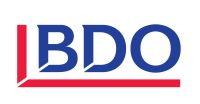Since Thailand joined the Inclusive Framework on ‘Base Erosion and Profit Shifting’ (BEPS) in 2017, we have witnessed several developments in ‘Transfer Pricing’ (TP) legislations in the country. As a signatory to the framework, Thailand is required to implement certain international tax standards focusing on Country-by-Country Reporting, exchange of information on request and the automatic exchange of financial account information (the “Common Reporting Standards”).
While Thailand has TP guidelines (Departmental Instruction No. Paw 113) since 2002, the TP law was issued only in November 2018 and was made applicable for accounting years starting on or after 1 January 2019. The update includes companies or juristic partnerships with an annual income of 200 million Baht or above to file a ‘disclosure form’ along with the annual corporate income tax return. These taxpayers are now required to file online forms in 2021, the second year of filing the TP disclosure form. The manual submission may be allowed with approval from the ‘Thai Revenue Department’ (TRD). Failure to comply with the submission requirements, including submission of inadequate or inaccurate information will result in a fine not exceeding 200,000 Baht.
In November 2020, the TRD further issued a regulation (Ministerial Regulation No. 369) providing the rules and conditions to be followed by tax assessment officers in performing adjustments of revenue and expenses of companies or juristic partnerships in case the transactions, including commercial and financial arrangements between related parties, are not conducted independently and are believed to be shifting profits.
The regulation defines “commercial and financial arrangements” as agreements or contracts relating to purchase of goods or services, marketing, advertising, or any other commercial activities, loan, financial support, financial cooperation, or any other financial activities, regardless of whether or not made in writing.
The arrangement will be deemed shifting of profit if the price, conditions, method, etc. are different from what they would be if the arrangement was made with third parties in similar circumstances. The comparability of the arrangement may be checked using internal data of the company or juristic partnership having similar arrangements with third parties. If there are no internal data to check the comparability, external data may be used. The prescribed bases, procedures, and conditions for adjustment of income and expenses were issued in January 2021 (Notification of the Director-General of Revenue Department relating to Income Tax No. 400).
The Director-General Notification (DGN) applies to assessable income for the accounting years starting on or after 1January 2021. The DGN provides the methods for comparability and in determining the arms-length price. The comparability of transactions must satisfy the criteria provided in the regulation. The prescribed methods for benchmarking and respective financial indicators are:
- Price for the comparable uncontrolled price method;
- Rate of profit from resale, for the resale price method;
- Rate of profit from cost plus, for the cost-plus method;
- Rate of net profit, for the transactional net margin method;
- Share of profits from operations, for the transactional profit split method; and
- Any other method if the above methods cannot be applied.
If other methods are considered for benchmarking, the Director-General of Revenue Department must be notified and examined by the tax officer. An aggregated benchmarking approach will only be allowed for closely linked transactions that cannot be benchmarked or analyzed separately.
In cases of service transactions, the actual need and benefits derived from the services are also required to be considered and shown, in addition to the benchmarking analysis.
In cases of transactions relating to intangible properties, the function, asset and risk analysis must be conducted. The functional analysis should include study of responsibility of each contracting party relating to development, improvement, maintenance, protection, and exploitation (DEMPE analysis) of the said intangible property. If the transaction relates to right to use, sale or transfer of intangible property, the expected benefits, geographical limitations, etc., must be considered.
Based on the adjustments carried out, following the methods prescribed in the DGN, the other party may have consequent adjustments, in accordance with the local regulations, if the other party is a Thai company or a juristic partnership, or in accordance with the applicable double tax agreements signed by Thailand, if the other party is a taxpayer registered under foreign laws.
BDO Insight: In June 2020, Thailand participated in the international efforts against tax evasion and tax avoidance by signing up for the ‘Multilateral Convention on Mutual Administration Assistance in Tax Matters’ (Convention). The Convention will enable Thailand to exchange information with other tax jurisdictions and get assistance in tax collection. In order to adopt the international standards on taxation and in implementing transparency standards of the BEPS, Thailand has been continuously updating its domestic laws. Thailand has also issued the draft regulation on Country-by-Country reporting, which is expected to be enacted before August 2021 and will be applicable for accounting years starting on or after 1 January 2021.
The TP disclosure form is being used as a risk assessment tool to check if MNEs engaged in controlled transactions are transacting at arm’s length. The now mandatory electronic submission of the form may allow ease in doing preliminary evaluations on intercompany arrangements. It may later be subject to further examination in accordance with the DGN and consequent adjustments during a tax audit.



